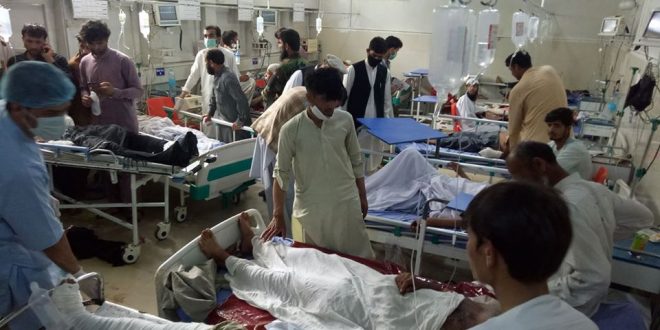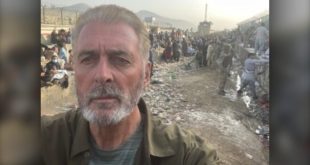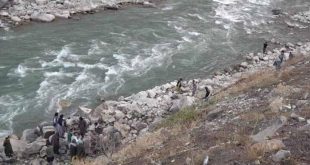An uptick in civilian death toll sounds the alarm of an escalating conflict and a need to contain it with more solemn peace effort
AT News
KABUL: Rising numbers of civilian casualties in Afghanistan, with a disregard for international law aimed at protecting civilians from harm, underscore the urgent need for parties to halt the fighting and to re-focus on starting intra-Afghan peace negotiations.
UNAMA’s latest preliminary figures indicate a trend of escalating civilian casualties in April from operations conducted by both the Taliban and the Afghan National Security Forces (ANSF). There is also grave concern about levels of violence in the first half of May, including recent attacks claimed by Islamic State-Khorasan Province (ISKP).
The Taliban were responsible for 208 civilian casualties in April, an increase of 25 percent in comparison to April 2019 and at similar levels as March 2020. Civilian casualties attributed to the ANSF for April 2020 numbered 172 civilians, an increase of 38 per cent compared to April 2019 and 37 per cent higher than March 2020. This data is provisional, subject to further review for UNAMA’s mid-year protection of civilians report.
The United Nations is deeply concerned by both the increase in civilian harm and the striking deterioration of parties’ respect for international humanitarian law, demonstrated by the recent shocking attacks on healthcare facilities and threats to healthcare workers, failures to take all feasible precautions in conducting airstrikes, and the use of large amounts of explosives in civilian-populated areas.
“I call for a halt to the fighting and for parties to respect humanitarian law that is there to protect civilians,” said Deborah Lyons, the Secretary-General’s Special Representative for Afghanistan.
“Parties have committed to finding a peaceful solution and should protect the lives of all Afghans and not jeopardise people’s hope for an end to the war,” said Lyons, who is also head of UNAMA. “Intra-Afghan peace negotiations need to start as soon as possible.”
Since 1 April, in addition to the unclaimed attack on a hospital in Kabul last week, UNAMA has documented the abduction of 15 healthcare workers by the Taliban as well as a threat to healthcare workers and confiscation of medical supplies by the ANSF.
Medical personnel and facilities have special protection from attack. Any incidents affecting people, places and supplies necessary for healthcare provision can have serious and wide-ranging consequences, particularly during the COVID-19 crisis. Intentional attacks on civilians and civilian objects, including medical facilities or protected personnel, may amount to war crimes.
The UN urges all parties to stop the war of words that is not helping those Afghans working to have intra-Afghan negotiations commence at the earliest time. In recent weeks the accusatory nature and bellicose tone of statements from all sides have played a negative and unhelpful role.
Major incidents documented by UNAMA so far in May include:
The attack on a Kabul hospital on 12 May, targeting its maternity ward, which resulted in at least 24 civilians killed, almost all of whom were female patients, leaving many newborn babies motherless.
An ISKP-claimed suicide attack at a funeral in Nangarhar on 12 May, which resulted in at least 19 civilians killed and many more injured.
A Taliban-claimed suicide truck bomb attack on 14 May in downtown Gardez, which injured at least 33 civilians.
An ANSF airstrike in Balkh on 11 May, which killed nine civilians and injured 13 while they were being forced by the Taliban to destroy a road to block ANSF.
Such attacks highlight the need for all parties to the conflict to respect international humanitarian law, including the principles of precaution, distinction and proportionality.
 Afghanistan Times
Afghanistan Times




